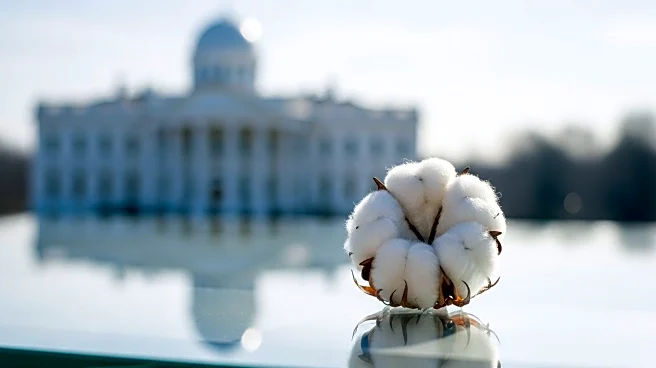What is the story about?
What's Happening?
The National Cotton Council has expressed support for the White House's One Big Beautiful Bill Act (OBBBA), which includes favorable provisions for the U.S. cotton industry. The act addresses key priorities for cotton farmers, such as increased reference prices and payment limits for upland cotton producers. Additionally, the Pima Trust Fund has been restored, providing financial support for marketing U.S. Pima cotton. The council is also focusing on consumer education about the environmental impact of synthetic clothing fibers, which contribute to microplastic pollution. The 'Plant Not Plastic' campaign aims to promote natural cotton fibers as a sustainable alternative.
Why It's Important?
The OBBBA's provisions for the cotton industry could have significant economic implications, providing financial stability and growth opportunities for U.S. cotton farmers. By addressing the environmental concerns associated with synthetic fibers, the industry is positioning itself as a leader in sustainable fashion. This shift could increase demand for natural cotton products, benefiting both farmers and consumers. The campaign against microplastics aligns with broader environmental goals and could influence consumer behavior and industry practices.
What's Next?
The cotton industry may continue to advocate for policies that support sustainable practices and address environmental concerns. As consumer awareness of microplastic pollution grows, there may be increased demand for natural fibers, prompting further innovation and investment in sustainable cotton production. The success of the 'Plant Not Plastic' campaign could lead to similar initiatives in other sectors, promoting a shift towards environmentally friendly materials.
Beyond the Headlines
The focus on natural fibers highlights the intersection of agriculture, fashion, and environmental policy. It raises questions about the long-term sustainability of synthetic materials and the role of agriculture in addressing environmental challenges. The campaign also underscores the importance of consumer education in driving market change and the potential for agricultural industries to lead in sustainability efforts.
















